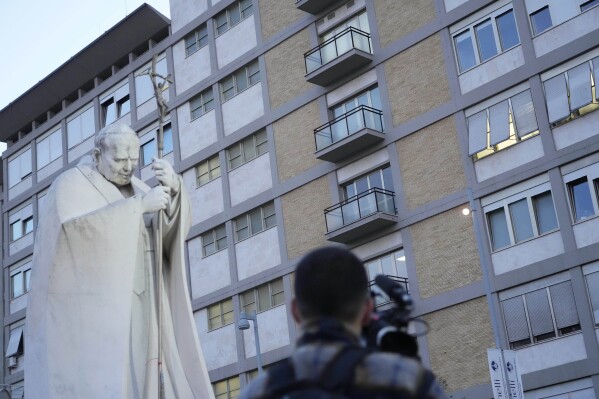US President Donald Trump’s second administration has gotten off to a fast start with a blizzard of initiatives focused on domestic commitments made during his campaign. His tariff-based approach to re-ordering global trade in a manner more favorable to the United States appears to be in its infancy, but the significant scale and scope are undeniable. That said, while China looms largest on the list of national security challenges, to date we have heard little from the administration, bar the 10 percent tariffs directed at China, on specific priorities vis-a-vis China.
The Congressional hearings for President Trump’s cabinet have, so far, failed to include a hard look at the challenges posed by China and how China is positioning itself to respond to the incoming administration’s policies. There has been no discussion on China’s sanctioning US defense companies for doing business with Taiwan for example, the impact of those defense companies’ commercial interests in China or how to jumpstart American domestic defense manufacturing to respond to these threats.
There are three important steps the Trump administration should consider to secure American commercial defense interests and the military and allies it supports.

Beijing is escalating its sanctioning of US defense companies, with 63 sanctions announced in 2024 and 39 in the first 15 days of 2025. The practical ramifications are minimal to date, as some sanctioned companies do not have any interests in China. However, the recent experience of leading American drone manufacturer Skydio is instructive. The company was sanctioned for selling weapons to Taiwan even though its engagement is with the civilian National Fire Agency, resulting in the severance of its access to Chinese-built batteries. China remained the sole source for the batteries, a supply chain vulnerability which China leveraged. While Skydio had already sought to recalibrate its supply chains outside Chinese influence, the sanctions resulted in rationing batteries. As chief executive officer of Skydio Adam Bry noted, “the Chinese government will use supply chains as a weapon to advance their interests over ours.” Skydio is better prepared to navigate the sanctions than many US companies, so the Trump administration needs to move swiftly to deconflict the American defense industry’s relationship with China.
Drones are becoming ubiquitous globally, and China’s false accusation of Skydio arms sales to Taiwan was likely an excuse to disrupt this American competitor to China’s premier drone maker DJI. Indeed, of the 112 companies that China has sanctioned to date, the US-Taiwan Business Council believes that only 68 percent are currently doing business with Taiwan’s defense sector, while the rest are supporting civilian interests or US defense interests directly. If Skydio is a canary in the coalmine, China appears to be positioning itself to undermine a significant number of US defense companies whose sole function to date is to support American defense interests. The Chinese appear to be positioning themselves to sanction a broad range of American defense companies, if tensions spike with Washington under the false premise that they’re doing defense business with Taiwan. They would rationalize it under their own laws, but the primary goal is to undermine US military readiness.
Second, the Trump administration should work with Congress to bar US defense companies from doing business in China. US law prevents the sale of military items to China, but some American defense companies do significant commercial business with Beijing. The leverage from these commercial interests in China has long resulted in behavior contrary to US national interests.
For example, in the 1990s, Boeing Co launched a pro-China PR campaign and lobbied against support for Taiwan. Since then, Boeing’s support for pro-China policies has been a hallmark of its US government engagement. Ironically, China has instead leveraged this support against the company’s interests by freezing commercial aircraft sales to pressure the US government. It is a cautionary lesson for any American company that believes they’ll accrue commercial benefits if they lean into supporting China’s political sensitivities.
The United States can and should sell commercial aircraft to China, but it is untenable to make defense and commercial decisions in the same boardroom — particularly now when Boeing is so vulnerable. Defense business leadership should be able to make decisions completely free of Chinese market considerations. It’s time to split the company into two. Indeed, it is time to direct all US defense companies to divest their business units active in China. This goes for any US defense company that sells into China’s commercial market.
Boeing and Skydio are both cautionary tales. China will seek to leverage its vast commercial market to undermine US defense interests, and they are positioning themselves to respond materially when the Trump administration launches its China trade and security policies striking at our support for Taiwan and our own defense industrial base.
Finally, in World War II, cutting-edge manufacturers like Ford moved into defense manufacturing and taught the American defense industrial base a new way to make weapons. Within several years, former US president Franklin D. Roosevelt’s vision of a “great arsenal of democracy” produced the platforms and systems the world needed to defeat the Axis powers. Today, the US similarly needs to look to the world’s leading manufacturers to learn how to make today’s weapons affordably and at scale.
A complex cutting-edge platform like the F-35 should be produced by its designer. However, many legacy weapons could instead be manufactured under license, by third parties. This is a job for the world’s leading systems integrators, and many of the best are in Taiwan. They can help revolutionize how America manufactures missiles and military vehicles, among other platforms and munitions.
The Trump administration should craft a list of initial products with strong domestic and foreign demand that could be licensed to qualified manufacturers. Those companies would invest significant corporate resources into the US, supporting a key tenet of Trump’s “America First” agenda to capture the opportunity. Taiwanese systems integrators already produce the world’s cutting-edge technology under license, so why not bring their skills to the US to move its defense industrial base into the 21st century?
Trump has proven willing to think out of the box. If we are to successfully meet the China threat, today’s arsenal of democracy needs to equip America with a defense industrial base free of Chinese coercion and with the manufacturing prowess to produce the weapons American and allied warfighters need to deter conflict. Or to win if China insists on fighting.
Rupert Hammond-Chambers is the president of the US-Taiwan Business Council (USTBC), a senior advisor at Bower Group Asia and sits on the board of The Project 2049 Institute.
#Rupert #HammondChambers #Taiwan #Trump #bolster #arsenal #democracy #meet #China #threat












Leave a Reply